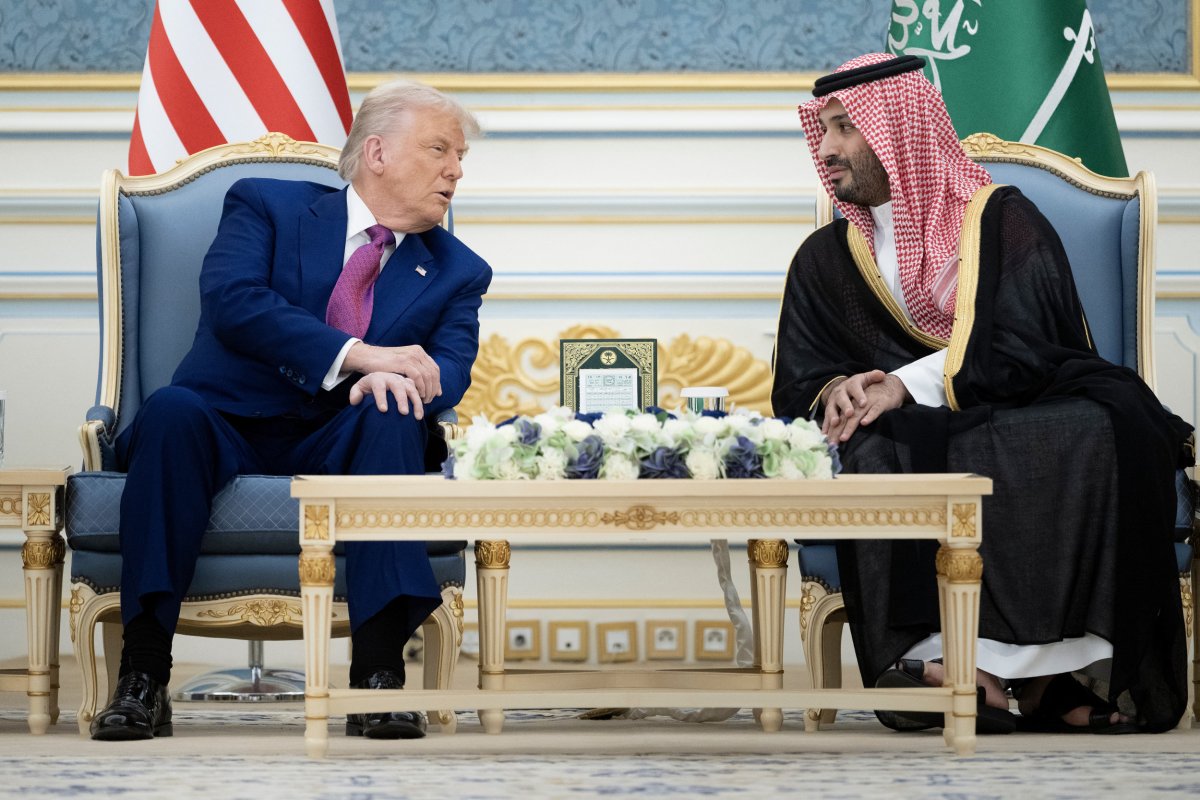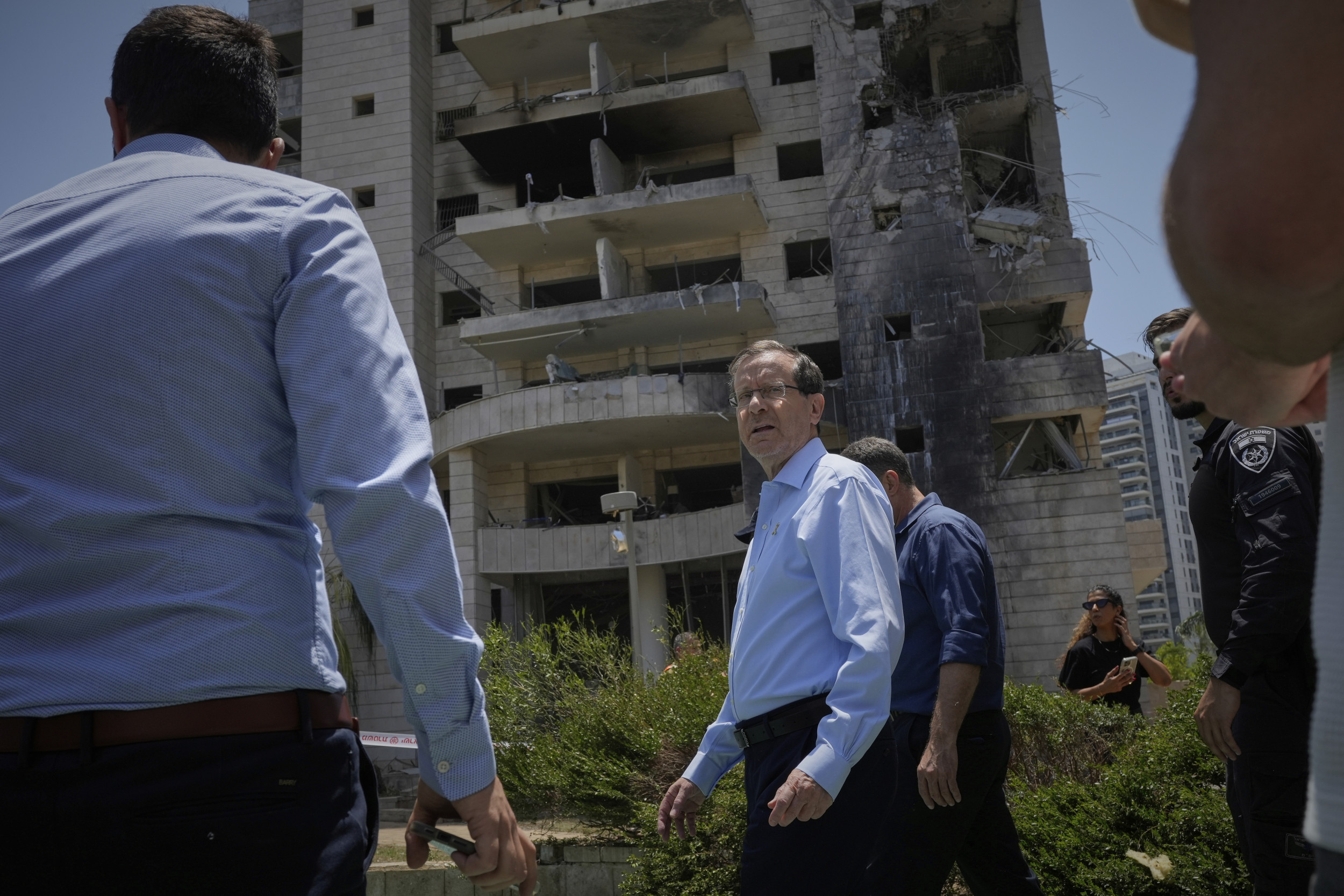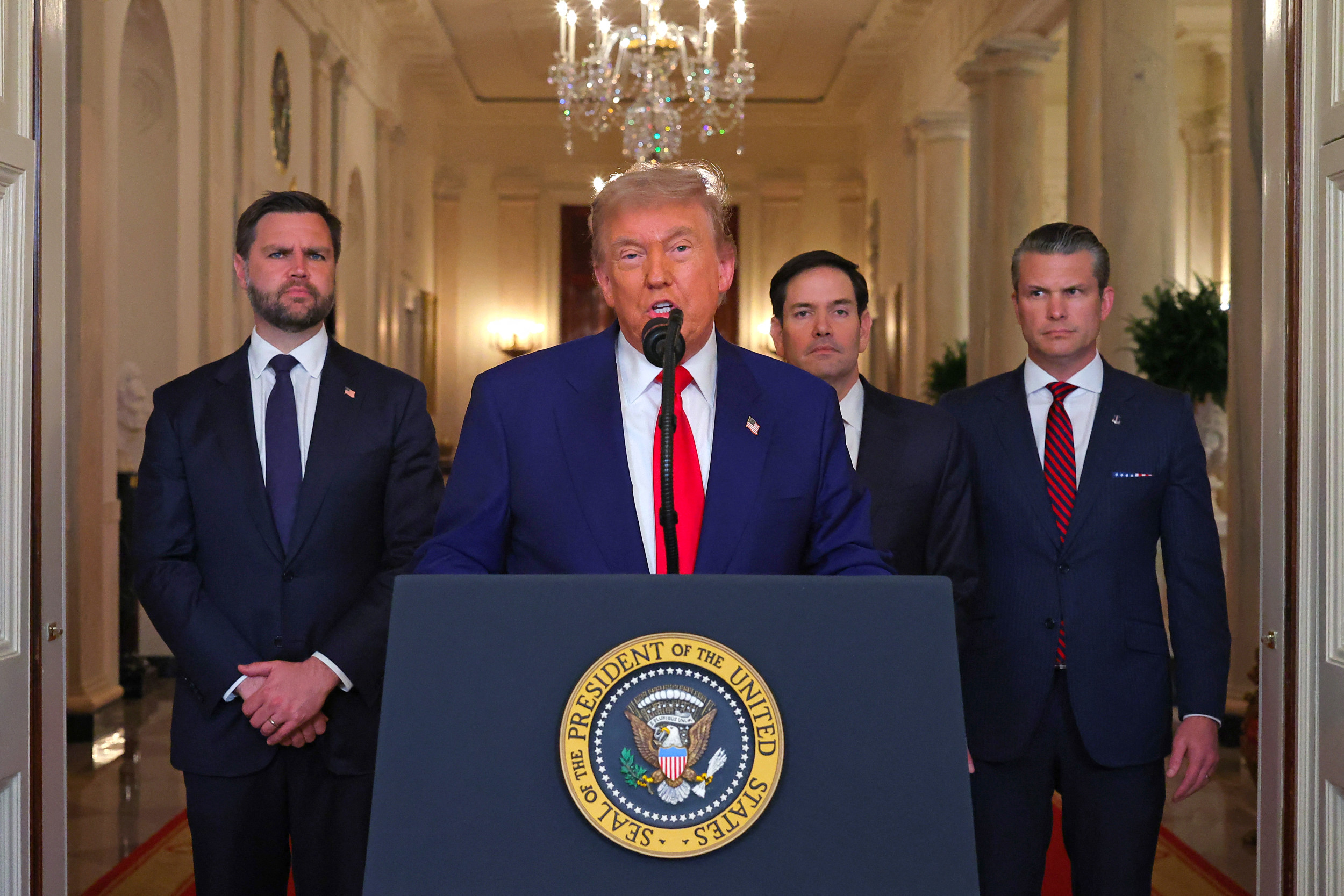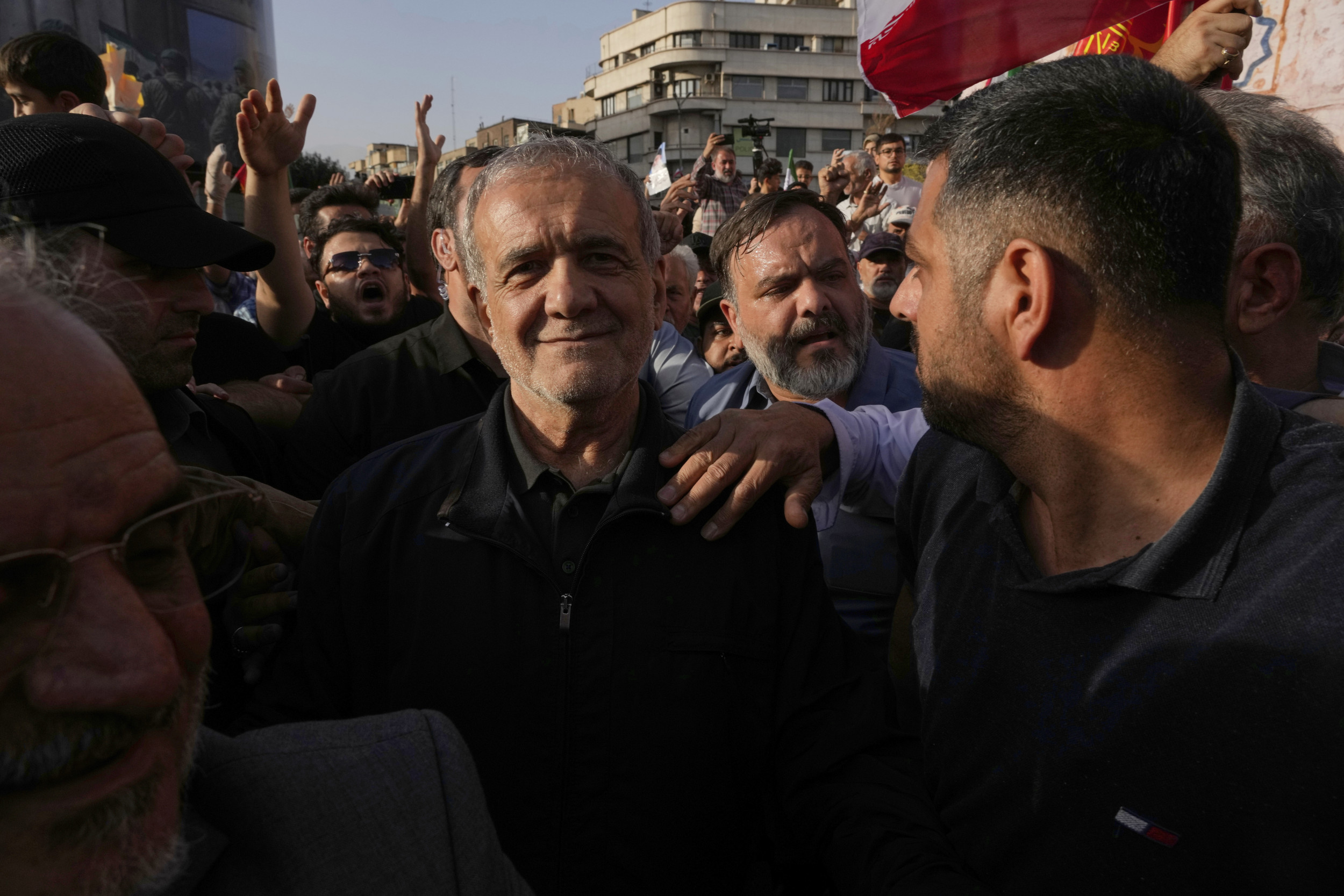🎙️ Voice is AI-generated. Inconsistencies may occur.
When U.S. President Donald Trump landed in Riyadh, Saudi Arabia, on Tuesday morning to kick off a four-day tour of the Middle East, he brought a large delegation that included senior figures from his administration and guests from the business world.
Trump was greeted with all the pomp of a royal welcome as he was met by Saudi Crown Prince Mohammed bin Salman after disembarking from Air Force One.
A Saudi-U.S. Investment Forum is taking place on Tuesday. Many of Trump's extensive delegation and top business leaders from the U.S. are set to attend, with growing U.S. trade being one of the focuses of Trump's Middle East trip.
Who Is in Saudi Arabia With Trump?
Among the top Trump administration officials who joined the trip were Secretary of State Marco Rubio, Secretary of Defense Pete Hegseth, Secretary of the Treasury Scott Bessent, Secretary of Commerce Howard Lutnick and Secretary of Energy Chris Wright.
Elon Musk—the billionaire founder of Tesla and SpaceX, who has been advising the White House on federal spending cuts—was also there.
Blackstone Group CEO Stephen Schwarzman, BlackRock CEO Larry Fink, OpenAI CEO Sam Altman and Nvidia CEO Jensen Huang were also among the many guests from the business world who attended the forum.
Other attendees included FIFA President Gianni Infantino, Palantir Technologies co-founder and CEO Alex Karp, Halliburton CEO and chair Jeff Miller, Alphabet and Google president and chief investment officer Ruth Porat, and Amazon president and CEO Andy Jassy.
Trump and Salman are scheduled to address the forum in the late afternoon Riyadh time on Tuesday.

Why Is Trump in Saudi Arabia, Middle East?
In addition to putting a focus on sealing economic agreements with a key Middle Eastern ally and addressing the investment forum, Trump is also expected to use the trip to hold talks on Iran's nuclear program, Israel's war in Gaza and oil production.
He is also due to visit Qatar and the UAE after Saudi Arabia.
Trump is trying to demonstrate that his transactional strategy for international politics is paying dividends as he faces criticism from Democrats who say his global tariff war and approach to Russia's war on Ukraine are isolating the United States from allies.
He's expected to announce deals with the three wealthy countries touching on artificial intelligence, the expansion of energy cooperation and perhaps new arms sales to Saudi Arabia.
Earlier this month, the Trump administration announced initial approval to sell $3.5 billion worth of air-to-air missiles for Saudi Arabia's fighter jets.
Trump hopes to restart his first-term effort to normalize relations between the Middle East's major powers, Israel and Saudi Arabia. Trump's Abraham Accords effort led to Sudan, the UAE, Bahrain and Morocco agreeing to normalize relations with Israel.
However, Trump arrived in the Middle East at a moment when his top regional allies, Israel and Saudi Arabia, are far from neatly aligned with his approach.
Riyadh has made it clear that in exchange for normalization, it wants U.S. security guarantees, assistance with the kingdom's nuclear program and progress on a pathway to Palestinian statehood.
There seems to be scant hope for making headway on a Palestinian state with the Israel-Hamas war raging.
This article includes reporting by the Associated Press.
fairness meter
About the writer
Shane Croucher is a Breaking News Editor based in London, UK. He has previously overseen the My Turn, Fact Check ... Read more




